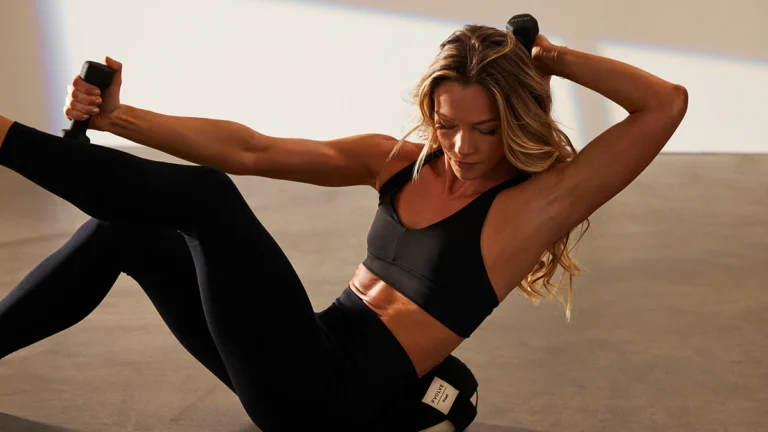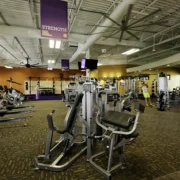[ad_1]
Women aged 40-60 saw improved lower body functioning after engaging in Pvolve’s functional fitness workouts, according to a new study
Pvolve collaborated with the University of Exeter to conduct a study on the impact of exercise on women both pre and post-menopause, focusing on those aged 40 and above; the initial findings reveal evidence that Pvolve’s functional fitness method measurably improves strength, balance and flexibility in this demographic, addressing a critical gap in women’s health research.
Researchers found that participants who consistently engaged in the Pvolve Method had improvements in hip function and lower body strength (+19%), full-body flexibility (+21%), and balance, mobility and stability (+10%), among other improvements.
The study was conducted by the University of Exeter, which recruited 72 women aged 40 to 60 years old. Participants were monitored over 12 weeks and assessed for objective and subjective measures. They were compared to the control group, which followed standard physical activity guidelines of 150 minutes of exercise per week.
“Age-related loss of muscle mass and strength is particularly important to counteract by women over forty because muscle mass and strength of women in their thirties already trends lower,” said Dr. Nima Alamdari, a Pvolve Clinical Advisory Board Member and Harvard-trained physiologist. “The Healthy Aging Study is a first-of-its-kind, underscoring the efficacy of lower impact, functional fitness on women’s health outcomes, not only protecting and improving physical strength but enhancing women’s quality of life and wellbeing.”
Women have long been underrepresented in the global fitness market, estimated at around $1oo billion. According to recent research, only 34% of participants in medical studies and a mere 6% in sports science studies were women. Pvolve’s Healthy Aging Study aimed to bridge the gap in knowledge about the impact of exercise on women aged 40 to 60.
As women enter their late 30s, they experience a decline in lean muscle mass, ranging from 3-8% per decade. There remains a strong culture around high-impact routines and cardio-based workouts, particularly for women. However, strength-focused workouts can help prevent injury risks from falling and generally improve mobility and coordination.
“As women age and go through various phases of menopause and other hormonal changes, they can experience a slowing metabolism, Sarcopenia and the natural decline of strength. It can be frustrating when trying to counterbalance things like weight gain or muscle loss, with a workout routine that is not producing expected results or is counter-productive,” said Antonietta Vicario, chief training officer at Pvolve. “Pvolve addresses the needs of women by understanding how to pair fitness with their life stages.”
“We’re proud to share initial research results and provide an effective, science-backed program that supports women’s overall health-span, especially given that research has historically focused on men or younger athletes,” Vicario added.
Pvolve made big gains in 2023, partnering with Jennifer Aniston, and conducting major brick-and-mortar franchise expansions throughout the United States, including locations in California, New York City and Atlanta, among others.
The Healthy Aging Study reveals the brand’s new potential strategic focus on older age groups, bolstered by the choice of Aniston as a brand ambassador and advisor. The A-lister partnered with Pvolve last year after seeing results using the brand’s functional fitness method.
“The Pvolve Method has been transformational for me, so I’m excited about the research that shows how Pvolve can help women improve their physical strength and overall well-being at any stage,” Aniston said.
[ad_2]
This article was originally published by a athletechnews.com . Read the Original article here. .



